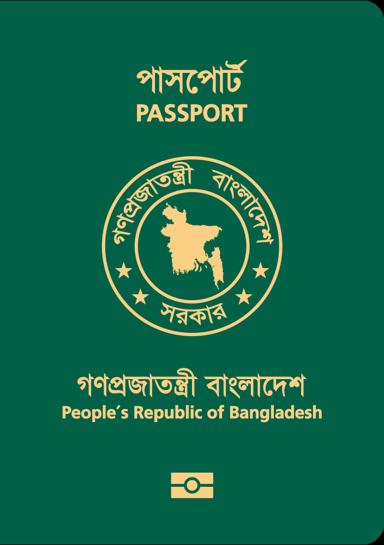
 Bangladesh
Bangladesh
 Bangladesh
Bangladesh Albania
Albania Antigua and Barbuda
Antigua and Barbuda Australia
Australia Bahrain
Bahrain Benin
Benin Botswana
Botswana Burkina Faso
Burkina Faso Cameroon
Cameroon Colombia
Colombia DR Congo
DR Congo Ivory Coast
Ivory Coast Ecuador
Ecuador El Salvador
El Salvador Equatorial Guinea
Equatorial Guinea Ethiopia
Ethiopia Gabon
Gabon Georgia
Georgia Guinea
Guinea Hong Kong
Hong Kong Indonesia
Indonesia Kazakhstan
Kazakhstan Kenya
Kenya Kyrgyzstan
Kyrgyzstan Malawi
Malawi Malaysia
Malaysia Moldova
Moldova Mozambique
Mozambique Myanmar
Myanmar Nigeria
Nigeria Oman
Oman Pakistan
Pakistan Papua New Guinea
Papua New Guinea Qatar
Qatar Sao Tome and Principe
Sao Tome and Principe Singapore
Singapore South Korea
South Korea South Sudan
South Sudan Suriname
Suriname Syria
Syria Tajikistan
Tajikistan Tanzania
Tanzania Togo
Togo Uganda
Uganda United Arab Emirates
United Arab Emirates Uzbekistan
Uzbekistan Vietnam
Vietnam Zambia
Zambia Zimbabwe
Zimbabwe Afghanistan
Afghanistan Algeria
Algeria Andorra
Andorra Angola
Angola Argentina
Argentina Armenia
Armenia Austria
Austria Azerbaijan
Azerbaijan Belarus
Belarus Belgium
Belgium Belize
Belize Bosnia and Herzegovina
Bosnia and Herzegovina Brazil
Brazil Brunei
Brunei Bulgaria
Bulgaria Canada
Canada Central African Republic
Central African Republic Chad
Chad Chile
Chile China
China Congo
Congo Costa Rica
Costa Rica Croatia
Croatia Cuba
Cuba Cyprus
Cyprus Czech Republic
Czech Republic Denmark
Denmark Dominican Republic
Dominican Republic Egypt
Egypt Eritrea
Eritrea Estonia
Estonia Swaziland
Swaziland Finland
Finland France
France Germany
Germany Ghana
Ghana Greece
Greece Guatemala
Guatemala Guyana
Guyana Honduras
Honduras Hungary
Hungary Iceland
Iceland India
India Iran
Iran Ireland
Ireland Israel
Israel Italy
Italy Japan
Japan Jordan
Jordan Kosovo
Kosovo Kuwait
Kuwait Laos
Laos Latvia
Latvia Lebanon
Lebanon Lesotho
Lesotho Liberia
Liberia Liechtenstein
Liechtenstein Lithuania
Lithuania Luxembourg
Luxembourg Macao
Macao Mali
Mali Malta
Malta Marshall Islands
Marshall Islands Mauritius
Mauritius Mexico
Mexico Monaco
Monaco Mongolia
Mongolia Montenegro
Montenegro Morocco
Morocco Namibia
Namibia Nauru
Nauru Netherlands
Netherlands New Zealand
New Zealand Nicaragua
Nicaragua Niger
Niger North Korea
North Korea North Macedonia
North Macedonia Norway
Norway Palau
Palau Palestine
Palestine Panama
Panama Paraguay
Paraguay Peru
Peru Philippines
Philippines Poland
Poland Portugal
Portugal Romania
Romania Russia
Russia Saint Lucia
Saint Lucia San Marino
San Marino Saudi Arabia
Saudi Arabia Senegal
Senegal Serbia
Serbia Slovakia
Slovakia Slovenia
Slovenia Solomon Islands
Solomon Islands Somalia
Somalia South Africa
South Africa Spain
Spain Sudan
Sudan Sweden
Sweden Switzerland
Switzerland Taiwan
Taiwan Thailand
Thailand Tonga
Tonga Tunisia
Tunisia Turkey
Turkey Turkmenistan
Turkmenistan Ukraine
Ukraine United Kingdom
United Kingdom United States
United States Uruguay
Uruguay Vatican
Vatican Venezuela
Venezuela Yemen
YemenBangladesh, located in South Asia, is renowned for its rich history and diverse culture. With a population of nearly 165 million people, it is the eighth-most populous country in the world. The official language is Bengali, but English is also widely spoken, especially in urban areas and among the younger generation.
The country’s climate is tropical, characterized by a monsoon season with high temperatures, humidity, and heavy rainfall. The weather is generally mild in the winter, while the summer can be extremely hot and humid. Despite the challenges posed by the climate, Bangladesh has a vibrant natural ecosystem with lush green landscapes, rivers, and a wide variety of wildlife.
Bangladesh’s economy is primarily based on agriculture, manufacturing, and services. The country is one of the world’s largest producers of textiles and garments. Despite significant progress in poverty reduction, Bangladesh still faces substantial development challenges due to its high population density and vulnerability to natural disasters.
The culture of Bangladesh is deeply rooted in its history, with influences from Hinduism, Buddhism, Islam, and British colonial rule. The country has a rich tradition of music, dance, and literature, and is known for its distinctive culinary traditions. Bangladesh is also home to numerous UNESCO World Heritage Sites, including the historic city of Bagerhat and the Sundarbans, the world’s largest mangrove forest.